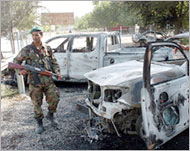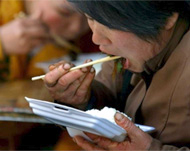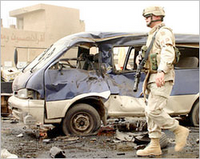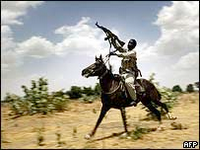Drive safely
 Having read about how Canadian, and presumably other foreign troops, in Afghanistan drive their vehicles, I wasn't surprised at the bizarre traffic incident in Kabul on Monday. Apparently military vehicles routinely wheel through city streets at high speed, not daring to slow down for fear of being attacked. Some Afghans call them "mice," referring to their rodent-like habit of scurrying from hole to hole.
Having read about how Canadian, and presumably other foreign troops, in Afghanistan drive their vehicles, I wasn't surprised at the bizarre traffic incident in Kabul on Monday. Apparently military vehicles routinely wheel through city streets at high speed, not daring to slow down for fear of being attacked. Some Afghans call them "mice," referring to their rodent-like habit of scurrying from hole to hole.On Monday, an American truck scurried into a traffic jam, killing at least one person. The incident then exploded out of control. Afghans attacked the American convoy with stones, the Americans and Afghan police fired shots, and the city erupted in rioting and looting.
The collision seemed inevitable with heavily armoured military vehicles constantly driving recklessly on city streets. It also illustrates the Afghan dilemma. Theoretically, our forces are in the country to save the people from religious oppression, yet the saviours hardly dare show their faces in public. Nonetheless, we are constantly assured the Afghans want our soldiers there. If so, why are they forced to behave like mice?


























